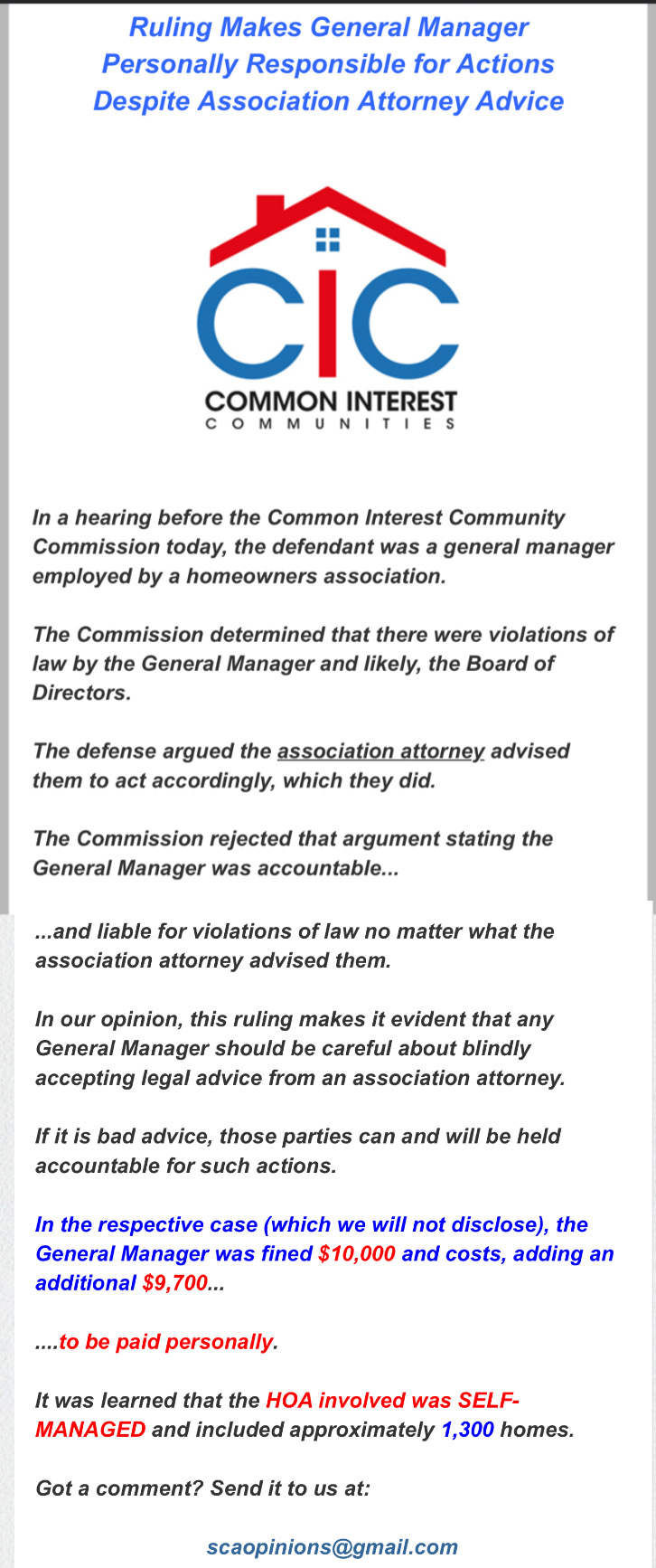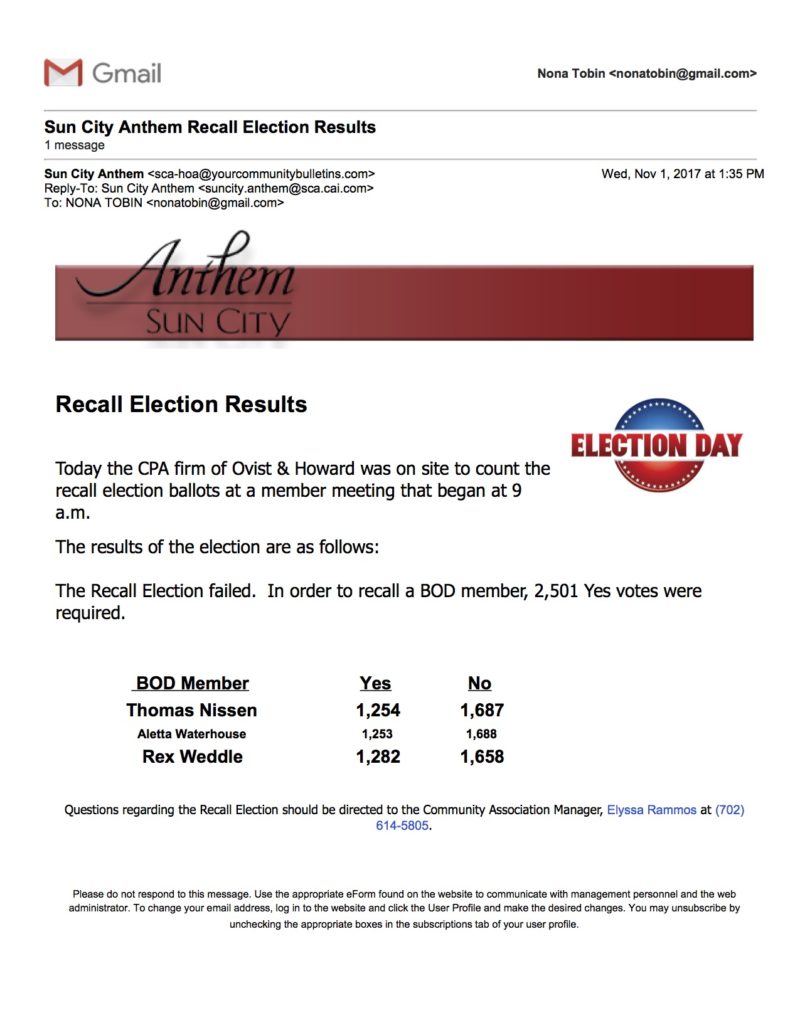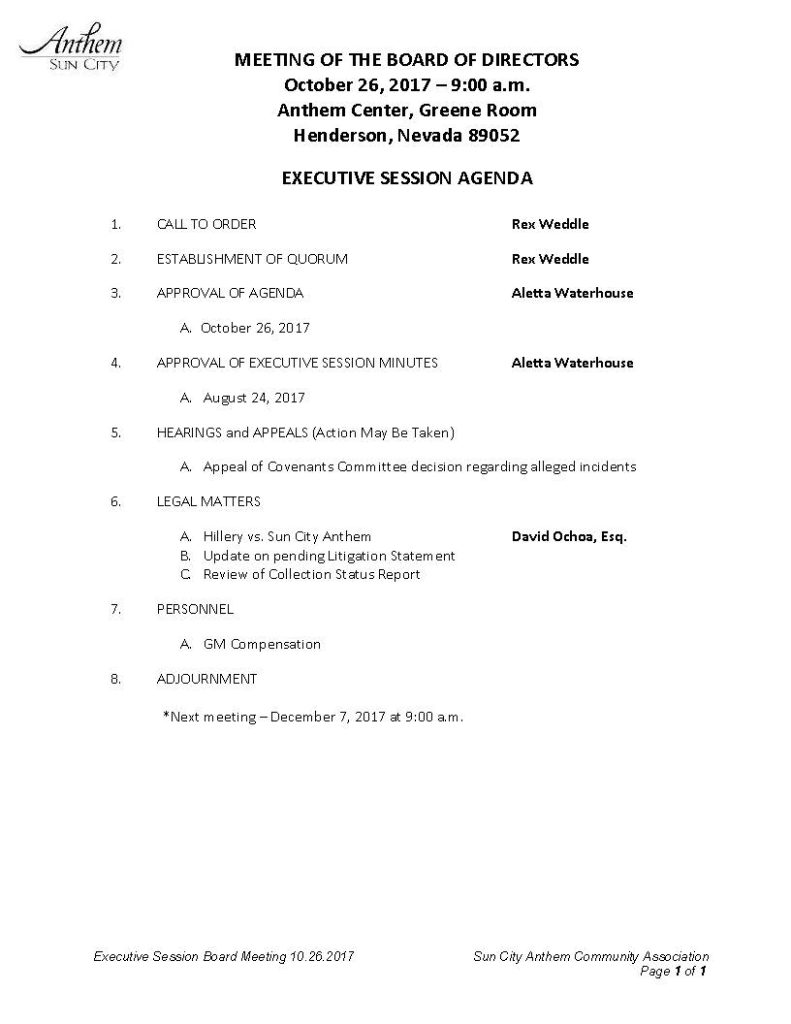What we can learn from The City of Bell Scandal
The Bell scandal involved the misappropriation of public funds in Bell, California, United States over a period of several years in the first decade of the 21st century. In July 2010, the Los Angeles Times published an investigative article on possible malfeasance in the neighboring city of Maywood, revealing that the city officials of Bell received salaries that were reported as the highest in the nation.[1] Subsequent investigations found atypically high property tax rates, allegations of voter fraud in municipal elections and other irregularities which heightened the ensuing scandal.[2] These and other reports led to widespread criticism and a demand for city officials to resign.[3][4]
In the end, seven Bell city officials, including former mayor Oscar Hernandez, former city administrator Robert Rizzo, assistant city administrator Angela Spaccia, and four city council members were convicted on graft and corruption charges, and were given sentences ranging from probation to twelve years in prison.[5] – Wikipedia City of Bell Scandal
In order to pull this scam off, step one was to conduct a fraudulent election to become a charter city so controls on salaries imposed by the state would no longer apply. The voters were poor and 90% Latino which made them easy marks. The City Council gave themselves salaries and so they turned a blind eye when the Manager authorized excessive compensation to the Attorney, Police Chief and other top managers Manager Rizzo’s salary during the final year of the scam was $1.5 million, five times what the L.A. country executive earned. Rizzo was unapologetic for years, falsely claiming he could have made that amount in the private sector.
Could that happen at SCA? Or does SCA have adequate internal controls to prevent such corruption?
Let’s see, how would we know if adequate protections are in place?
The Board, GM and attorney claim that unit owners cannot access information needed to evaluate the adequacy of internal fraud prevention controls. They put lipstick on this pig by claiming it is their fiduciary duty to keep confidential whatever they say is confidential – even if there are specific provisions in the law that prohibit SCA records being withheld by SCA agents from owners or individual members of the Board.
It is an abuse of privilege to demand that routine business correspondence/emails or training sessions must be treated as “confidential”. To prevent owners from knowing about these Board or GM actions that are supposed to be exclusively for the benefit of the owners violates both the spirit and the letter of the law.
It’s particularly troubling when the attorney gives the bizarre interpretation of SCA bylaws 6.4c to falsely claim that the attorney has the authority to restrict an individual Board member from inspecting ANY SCA records. While I was a Board member, I was ORDERED to stop asking questions about GM compensation and denied access to ANY SCA documents until they were partially released a month after I was kicked off the Board on false charges.
It doesn’t take a genius to figure out why concealing records from a Board member who is trying to ascertain the adequacy of fraud prevention controls looks a little suspicious.
Excessive secrecy is a giant red flag.
Owners have a right to know:
- Does SCA pay extraordinarily high executive salaries without using a process that would justify them as a rebuttable assumption?
- Have there been failed attempts to remove elected officials followed by allegations of election interference by the highly compensated GM?
- Are board actions taken in secret without tolerating any owner involvement?
- Do SCA agents make policy decisions which NRS and SCA bylaws prohibit the Board from delegating?
- Has the system for owner oversight been decimated under Self-Management?
My conclusions
Prior Boards should be congratulated for the excellent start toward a good governance system that they accomplished by the creation of the Board Policy Manual. It’s tragic that the current Board President led the Board away from the simple task of following it.
As a result, SCA is now swinging without a net. We do not have a fair and open system. Owners must be involved to strengthen the system so the rules apply equally to us all and the rules protect us all equally. And we certainly don’t need an attorney to charge us $325/hr to tell us how to do it wrong.
It is a waste of time to keep bickering over whether the individuals on the Board are corrupt or not. It is enough to say that the Board is not exercising enough competent control over SCA’s agents to adequately protect owners from the negative consequences of their actions, intentional or not.
Make your vote count
We simply need to elect people who are willing to be trained to ensure that a governance system is established that is transparent, FAIR, and strong enough to protect owners no matter who is in charge. This process cannot simply be delegated to the GM for a “recommendation”.
But, even if it such delegation were appropriate, the GM has not demonstrated that she would have the necessary leadership or analytical skills to lead an inclusive, collaborative process to a satisfactory conclusion that meets the needs of the SCA membership.
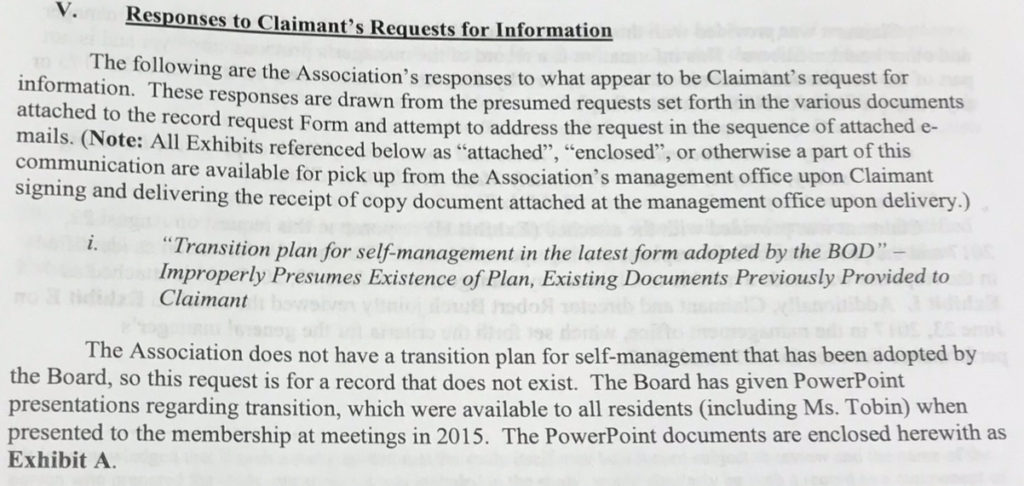
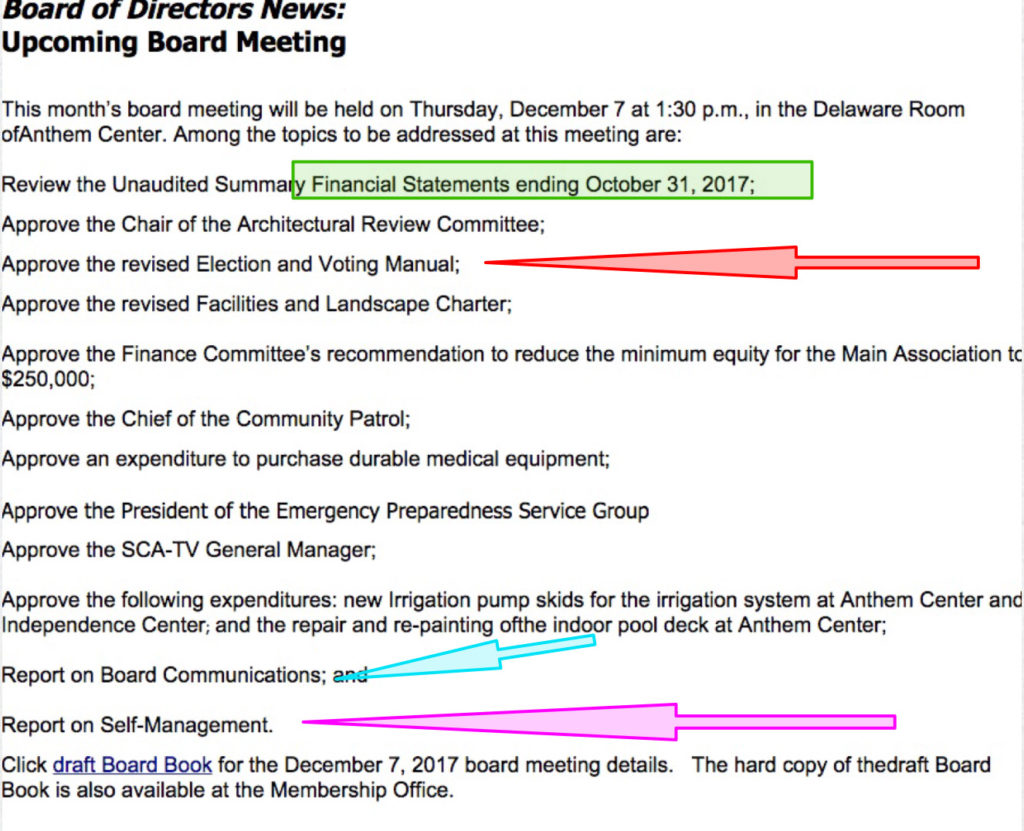


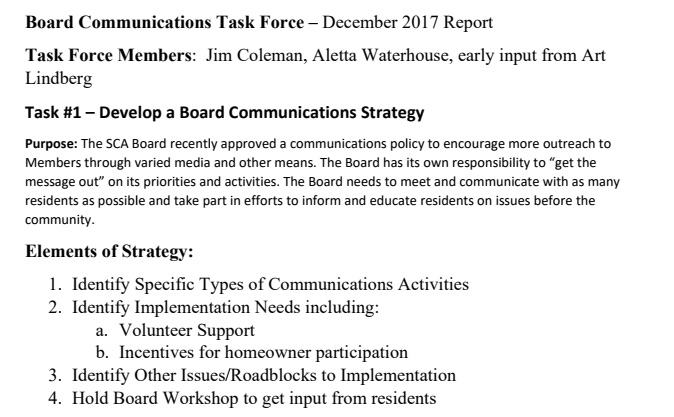
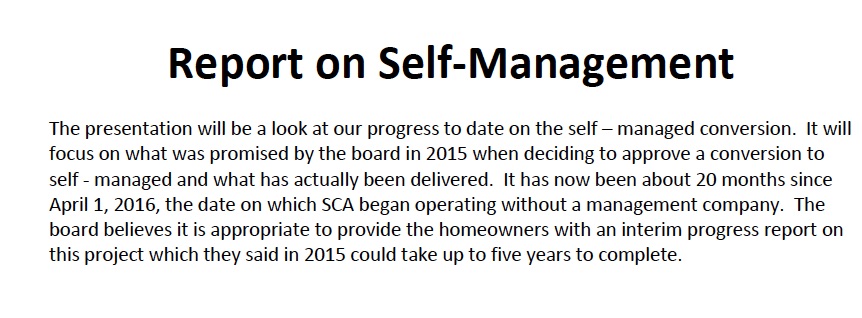 The paragraph above the total back-up in the Board book to let owners know what the Self-Management item is about.
The paragraph above the total back-up in the Board book to let owners know what the Self-Management item is about.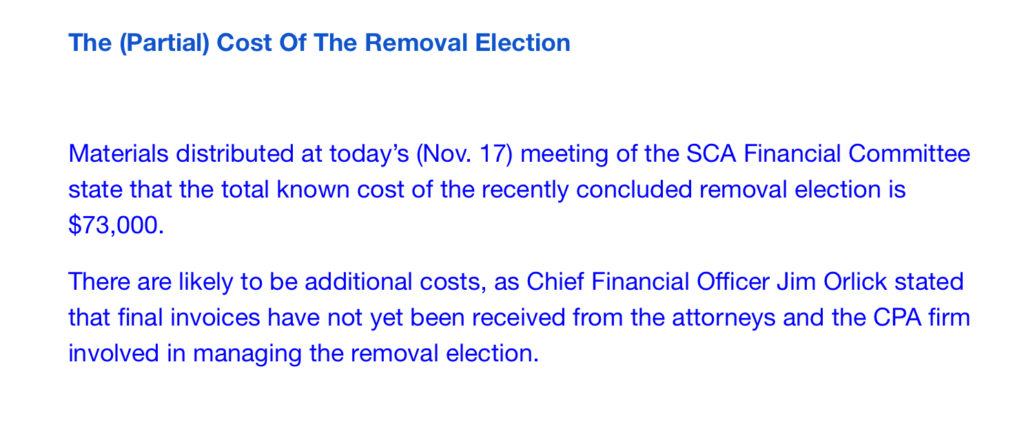 Sad. SCA deserves so much better.
Sad. SCA deserves so much better.